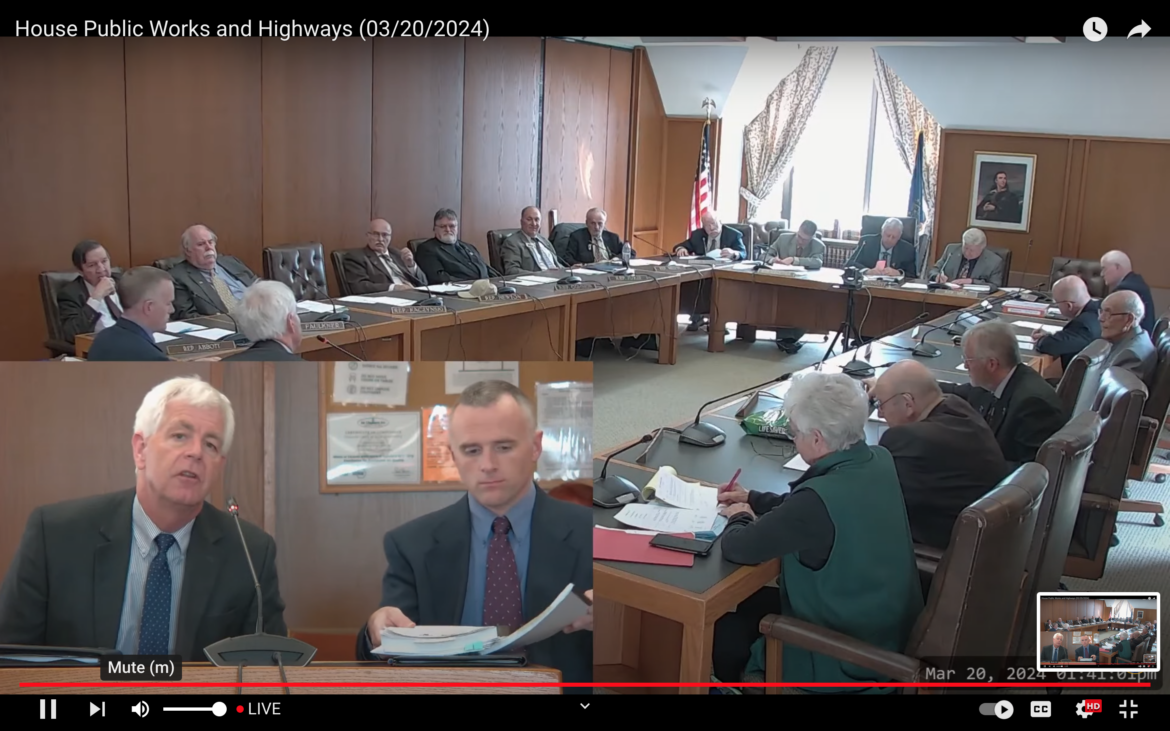By GARRY RAYNO, InDepthNH.org
CONCORD — A proposal to use turnpike toll credits to establish a noise barrier construction fund may pass the legislature, but there is little likelihood it would generate the revenue needed to speed more barrier construction, a committee was told.
Sen. Denise Ricciardi, R-Bedford, is the prime sponsor of Senate Bill 580, which would have the Department of Transportation sell up to $10 million in toll credits a year to go into the noise barrier funds.
Appearing before the House Public Works and Highways Committee, she said the plan would benefit the entire state as it would provide a vehicle for constructing noise barriers without an additional burden on taxpayers.
“For me quality of life is important,” Ricciardi said. “Your home is your castle, and you have a right to live there in peace.”
The bill would have the Department of Transportation sell up to $10 million a year of toll credits the state earns for spending state money on the federal turnpike system within the state.
The state uses the toll credits to match the federal requirements for projects that qualify, but not all projects can be matched with toll credits and instead require a hard cash match.
Department of Transportation Commissioner William Cass told the House Public Works and Highways Committee Wednesday there is currently no federal marketplace set up to sell the turnpike toll credits and any such plan would need future approval at the federal level. The sale of toll credits was authorized three years ago, he said, but the marketplace never set up.
Cass said the anticipation would be that the credits would be sold below face value if a marketplace is ever established.
The committee was also told the bill would reduce the number of federal highway projects the state could use the credits as a match.
Under the bill, there would have to be enough toll credits available for five years based on past usage before the sale of $10 million in credits could be sold at the discretion of the transportation commissioner.
Currently the state has $186 million in toll credits, down from a high of $300 million in 2014, but the amount the state receives has been declining and for a three-year period the state did not meet the maintenance of effort requirement to qualify for the credits and is likely to be in that situation again going forward.
Cass said the state uses about $50 million of credits a year to match federal money and has been receiving about $40 million in credits the past four years creating a $10 million annual deficit.
The $186 million in credits the state has could last a long time to cover the $10 million annual deficit, Cass said, but not if the state fails to qualify for credits under the maintenance of effort, and has to use $50 million annually to match the federal money.
“Turnpike expenditures have not been as robust as they have been in the past,” Cass said.
The impetus for the bill, Ricciardi told the committee, was Teaberry Lane in Bedford where for 20 to 25 homeowners, they cannot stand in their driveways and carry on a conversation.
But several members of the committee noted the area has been a frequent topic before the committee, and one member noted the area is also where the Everett Turnpike is being expanded.
The department said it did a study in 2017 and identified 260 potential locations for sound barriers although not all would qualify for a barrier due to federal or state requirements, said Jon Evans of the agency’s environmental division handling the noise issue.
Cass said the barriers require local municipalities to contribute to have some ownership of the project and many are not willing to do that.
“I recognize the issue is on a lot of people’s minds to fund noise barriers and mitigate highway noise and this is intended as one way to fund them,” Cass said. “If it is appropriate in the short-term or long-term, is questionable.”
Committee chair Rep. Mark McConkey, R-Freedom, said it is necessary to understand these sound barriers are an auxiliary use to roads and highways.
“We’ve been through this many times before and seen the list get to two pages,” he said. “There is a tremendous need, but we do not have a way to fund that at this point and time.”
The committee did not make an immediate recommendation on the bill.
Garry Rayno may be reached at garry.rayno@yahoo.com. Garry Rayno is InDepthNH.org’s State House bureau chief and has been a reporter for 40 years.






